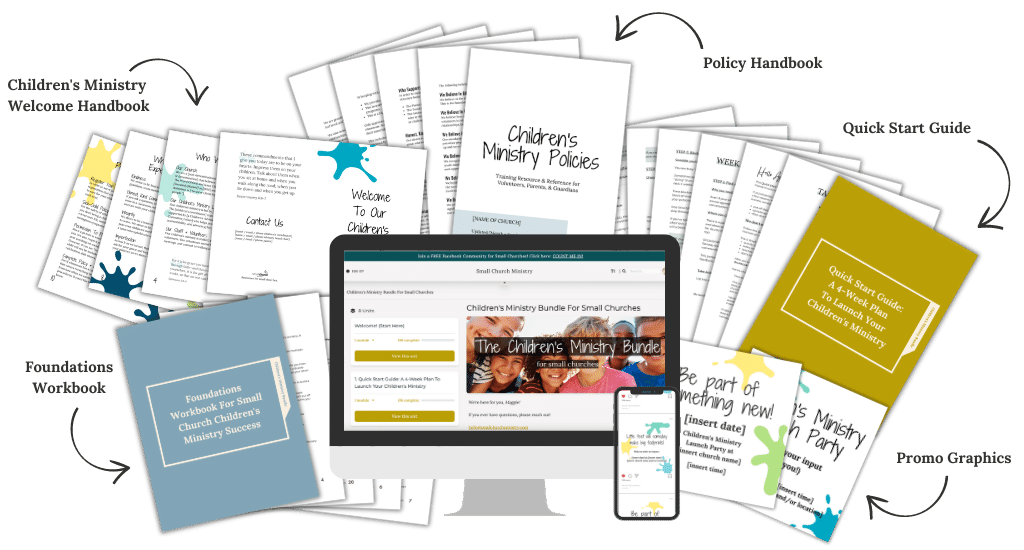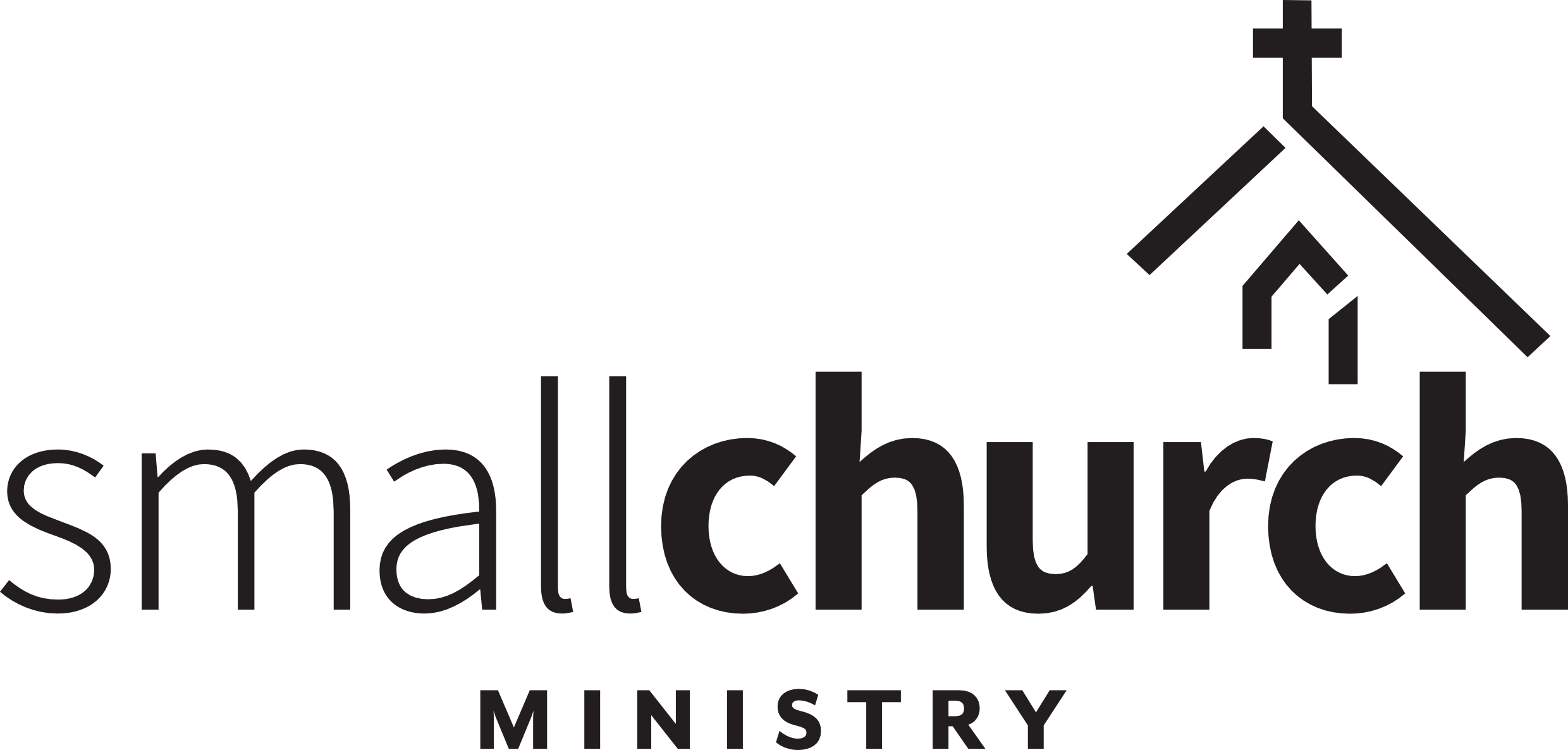This post may contain affiliate links, which means I may earn a small commission from purchased products at no additional cost to you. See my full disclosure here.
In a small church children’s ministry, it is often a mixed-aged classroom. Here are some tips on how to train junior teachers to help out.
Small churches often find themselves using a “one-room schoolhouse” model for Sunday school or children’s church. With students ranging from preschool to upper elementary, we struggle to keep all ages engaged and fed. From different learning abilities to engagement levels and maturity, the struggle is real!
This post is for you if you …
- Need more volunteers in the classroom
- Want to keep all ages of students engaged & learning
- Desire to help students to grow in leadership skills
For a solution that’s a win-win for all involved, keep reading!
5 Steps To Mentor Older Students To Teach The Youngers In Multi-Age Sunday School
1. Identify Possible Classroom Aids & Helpers
Who do you feel would fit into this mentoring plan?
Have you observed someone with gifts or talents connecting with the younger students?
2. Get Permission Through The Proper Channels
Write a brief mission statement of what you hope to accomplish with this program.
Make sure your pastor/Christian Ed team is on board and informed.
Write a description of what the junior teachers will be expected to do, the training that will be given, and the time commitment required to participate. (Attending classes/length of the teaching –– a quarter, a year, etc. Do they have to come to class early/stay late?)
Make sure to get permission from parents before you ask the student to participate.
Looking for a step-by-step to starting or restarting your children’s ministry?
Check out the Children’s Ministry Bundle For Small Churches!

3. Throw A “Join Our Team” Party
Invite your candidates to a party. Plan a special time with the students to discuss the program and the possibility of them taking part in the ministry.
Make it special, serve refreshments, play a mixer game to get to know each other, and supply them with a thank you bag to take home (i.e., a notebook, pen, some candy, a special name lanyard to wear on Sundays).
Getting To Know You
First of all, let them share what they feel their abilities and giftings may be.
(At this age, they may not be familiar with the terms, but they can certainly answer the following questions.)
- Ask them if they might like to read aloud.
- Are they good at acting things out? Are they involved with school plays?
- Do they like to draw pictures or lead games?
- Do they like to sing or play an instrument?
- Would they enjoy being a junior teacher or a group leader of a specific activity?
4. Invite Them To Participate
Make sure to explain what you are asking the students to do, how much time this would take, and all that would be expected of them. You want them to make informed decisions and know that you value what they think.
Give time for them to ask questions.
You also want to encourage them with all that they will be receiving from this process.
- Training in how to work with children
- Tips on how to teach, interact and engage with others
- How to be able to explain the main Bible points of the lesson so that children can understand
- Explain that this is a way to serve the Lord and see how we all can grow in our faith, no matter our age or stage.
5. Mentor & Support Your Junior Teachers
If you find that your older students are on board for helping, praise God!!
It’s important to use this as an opportunity to deepen their faith and help them to discover who God is in their lives.
This whole process is probably going to require you to have an extra meeting with these kids each week to train them and prepare the lesson together. Remember, your support in this ministry is vital! Just think how God will use this time of getting some special attention to encourage their hearts –– attention which they are probably not getting in a classroom with preschoolers!
This extra time also allows you to teach them the lesson in a different way, but one that is age-appropriate and helps them have success in their jobs as junior teachers. It’s a win-win!
3 Keys To Support Junior Teachers & Helpers
1. Meet With Your Junior Teachers For Lesson Prep
Before your meeting, make a chart with all the various parts of your class schedule.
Have name slips for all the older kids who will be helping.
As you discuss and explain each part of the class time, you can have them volunteer to help with the parts of the lesson that interest them. As you progress in your program, you should encourage them to try different parts, but whatever they are comfortable with to start is perfect.
Have teaching tips prepared to share with them about how to deal with that age group, how they think, what they like, how they learn best, what to expect, how to deal with children who are upset, etc.
For example, teach them that when you have preschoolers in the classroom, it’s important to have a routine schedule.
Younger children thrive on doing the same processes each week. It makes them feel safe and empowered because they know what’s coming next. When they can be part of the class and participate, it makes them feel important and we want them to know that God made them special!
Stop along the way for discussion and for them to ask questions or to share interactions that they have had with children. Allow the junior teachers the chance to offer suggestions, activities, or ideas that they would like to see or that they have personally enjoyed as a child. Value their input, encourage their participation, and applaud their excitement!
2. Make A Classroom Schedule
Thoroughly discuss the classroom schedule that is on your chart with your junior teachers, making sure they know what to expect and what is expected of them during each section.
Here’s an idea of a sample schedule.
For full details, fill out the form below to get your PDF!
9:00-9:10 Welcome Time & Free Playtime
9:10-9:20 Circle Time & Song Time
9:20-9:30 Story/Lesson Time
9:30-9:45 Review Play Time
9:45-9:55 Snack Time
9:55-10:15 Free Time-Parent Pick Up
3. Evaluate & Assess
When all the children have left, or the next time you gather with your junior t’s, ask them:
- How did they think the class went?
- What part did they like the best?
- How do they think their part went?
- What should we do differently next time?
- Any ideas on games, songs, or crafts we should do?
Always have a time of prayer, thanking the Lord for the younger students, as well as the involvement of the junior teachers. Pray for any specific needs that are brought up or any special prayer request that children have made known to you. Thank the Lord for teaching and leading you all as you serve Him.
Spend the time to hear their voices/input, encourage them to have ownership of the class, value their opinions, and you will see Jesus working and growing in their lives!
Make sure to report to parents and leadership on how your team is doing. They need to be supported and encouraged by the whole church as well as their families.
As they gain experience, have your new team come up with some special ‘theme’ days throughout the year and try some different age-appropriate activities (PJ’s & Pop-Tarts Day, Video Day w/Popcorn, Grandparents Day, Donuts w/Dad Day, etc.).
Invest in these kids, and you will be investing in the kingdom. That’s an investment that can only grow in value!!
Looking for a step-by-step to starting or restarting your children’s ministry?
Check out the Children’s Ministry Bundle For Small Churches!

Read More
Youth And Children’s Ministry In Small Churches
Understand 2 Types Of Special Needs Ministry For Your Small Church

